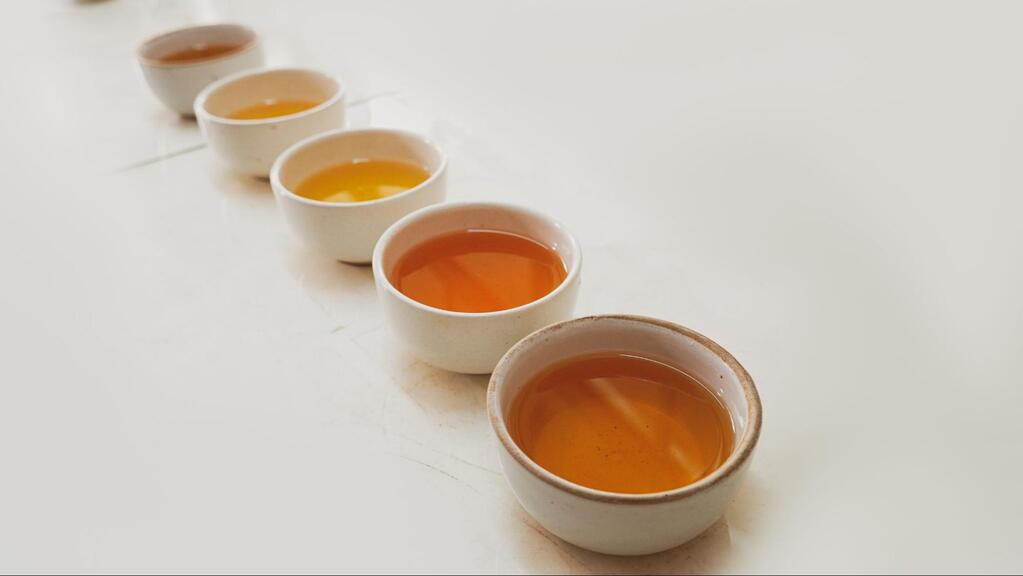No Products in the Cart

In the world of tea lovers and for those seeking a daily caffeine fix, the choice between Darjeeling Green Tea and Darjeeling Black Tea becomes a pivotal consideration. The caffeine content in tea is a subject of curiosity, prompting the question: "Which tea packs more punch regarding caffeine – Darjeeling Green Tea or Black Tea?" This question is not as simple as it sounds, and we explore in an attempt to find the correct answer, we will delve into the intricacies of caffeine in both types of tea, aiming to provide clarity for those navigating the world of tea consumption.
Understanding Caffeine in Tea
Caffeine, a natural stimulant found in tea leaves, belongs to the class of compounds called xanthines. Its effects on the central nervous system include increased alertness, enhanced focus, and reduced fatigue. Factors influencing caffeine content in tea include the origins/terror of the tea, processing methods, and steeping technique.
Shop Now: Darjeeling Golden Summer Muscatel
How Much Caffeine is in Darjeeling Black Tea?
Darjeeling Black Tea, known for its distinct aroma and complex flavors, is a favorite among tea enthusiasts. The caffeine content in Darjeeling Black Tea varies based on several factors, including the tea plant variety, altitude of cultivation, and processing methods. On average, a standard cup of Darjeeling Black Tea (approximately 8 fluid ounces or 240 ml) contains about 40-70 milligrams of caffeine. Notably, Darjeeling Black Tea’s caffeine content falls within the mid-range compared to other black teas globally.
Addressing common questions such as "Does Darjeeling Black Tea have caffeine?" and "How much caffeine is in Darjeeling Black Tea?" is essential for informed tea consumption. The answer is unequivocally yes, Darjeeling Black Tea does contain caffeine. However, the precise caffeine content can vary, to be determined most accurately only by lab testing, and individuals may want to adjust their intake based on personal caffeine sensitivity and preferences.
Shop Now: Darjeeling Emerald Green Tea
How Much Caffeine is in Darjeeling Green Tea?
Darjeeling Green Tea, enjoyed for its delicate flavor, umami taste, minimal astringency, and health benefits, presents an alternative for those seeking a lighter tea option. The caffeine levels in Darjeeling Green Tea are notably lower than its black counterpart's. On average, an 8-ounce cup of Darjeeling Green Tea contains approximately 20-45 milligrams of caffeine.
Addressing questions like "Does Darjeeling Green Tea have caffeine?" and "How much caffeine is in Darjeeling Green Tea?" is crucial for those making dietary choices based on caffeine content. While Darjeeling Green Tea does contain caffeine, the levels are relatively lower than in Darjeeling Black Tea, catering to individuals who may be more sensitive to caffeine or simply prefer a milder stimulant.
However, again, exact caffeine levels are only measured by lab testing, and although it is generally the case where Darjeeling Green Teas has lower caffeine levels than Darjeeling Black Teas, some caffeine levels in certain Green Tea batches might be higher than black tea, and this would not be too surprising.
Read more about: What Does Darjeeling Tea Taste Like?
Caffeine in Black Tea vs. Green Tea
Let's compare caffeine consumption in Darjeeling Black Tea and Darjeeling Green Tea. While both teas originate from the same tea plant, Camellia sinensis, their distinct processing methods result in varying caffeine levels.
Darjeeling Black Tea, undergoing full oxidation during processing, exhibits a bolder and more complex flavor profile and a higher caffeine content. The oxidation process amplifies the caffeine concentration, contributing to the robust characteristics of Darjeeling Black Tea.
Conversely, Darjeeling Green Tea undergoes pan frying or steaming to stop oxidation, preserving the natural green color and delicate flavor. The reduced oxidation results in lower caffeine levels compared to Darjeeling Black Tea. This makes Darjeeling Green Tea appealing to those seeking a tea with potential health benefits and a milder stimulant effect.
Potential Health Benefits and Drawbacks of Caffeine Intake
While caffeine is renowned for its stimulating effects, it's essential to consider its potential health benefits and drawbacks. Moderate caffeine intake has been linked to improved cognitive function, increased metabolism, and enhanced physical performance. On the flip side, excessive caffeine consumption may lead to insomnia, increased heart rate, and digestive issues.
With its higher caffeine content, Darjeeling Black Tea may provide a more robust energy boost, making it suitable for those needing a stronger stimulant effect. However, individuals sensitive to caffeine or looking to limit their intake may find Darjeeling Green Tea, offering a milder and gentler source of stimulation, a preferable option.
Read more about: Caffeine Content and Myths in Tea
In conclusion, the choice between Darjeeling Green Tea and Darjeeling Black Tea concerns individual preferences, caffeine sensitivity, and desired flavor profiles. Both teas have their merits, with Darjeeling Black Tea offering a stronger caffeine kick and robust flavor, while Darjeeling Green Tea provides a lighter option with potential health benefits.
For those seeking a middle ground, alternating between the two or opting for a blend might be a suitable approach. Ultimately, the key lies in understanding one's caffeine tolerance and choosing the tea that aligns with individual health goals and taste preferences. As with any dietary choice, moderation is key, and consulting healthcare professionals for personalized advice is recommended. The world of Darjeeling teas awaits exploration, offering a nuanced journey for those intrigued by the interplay of caffeine and flavor.